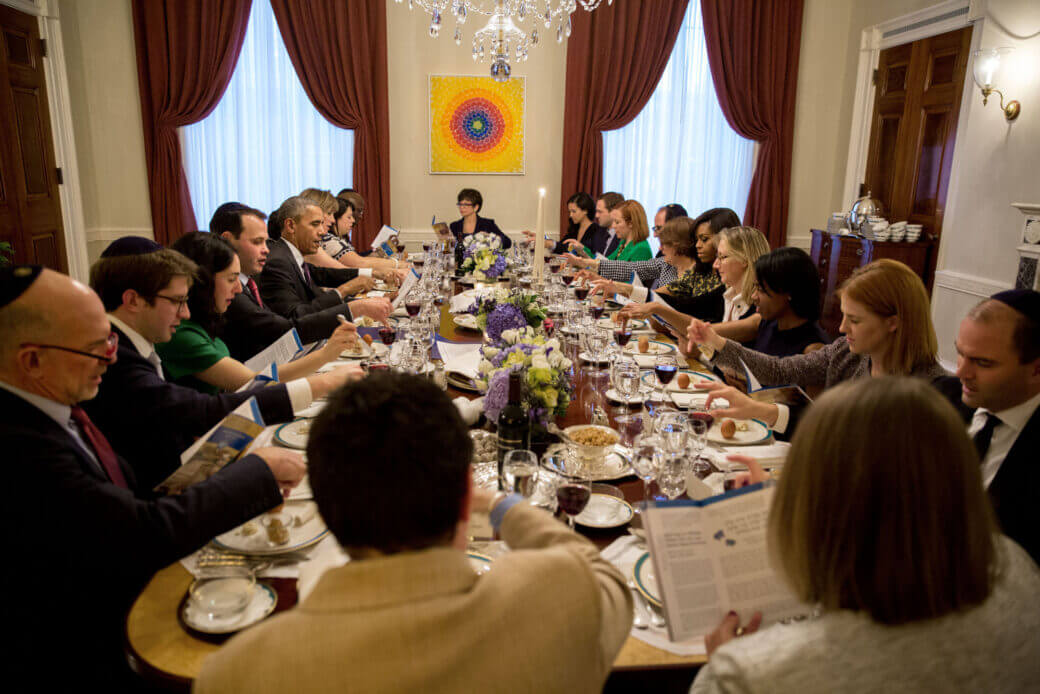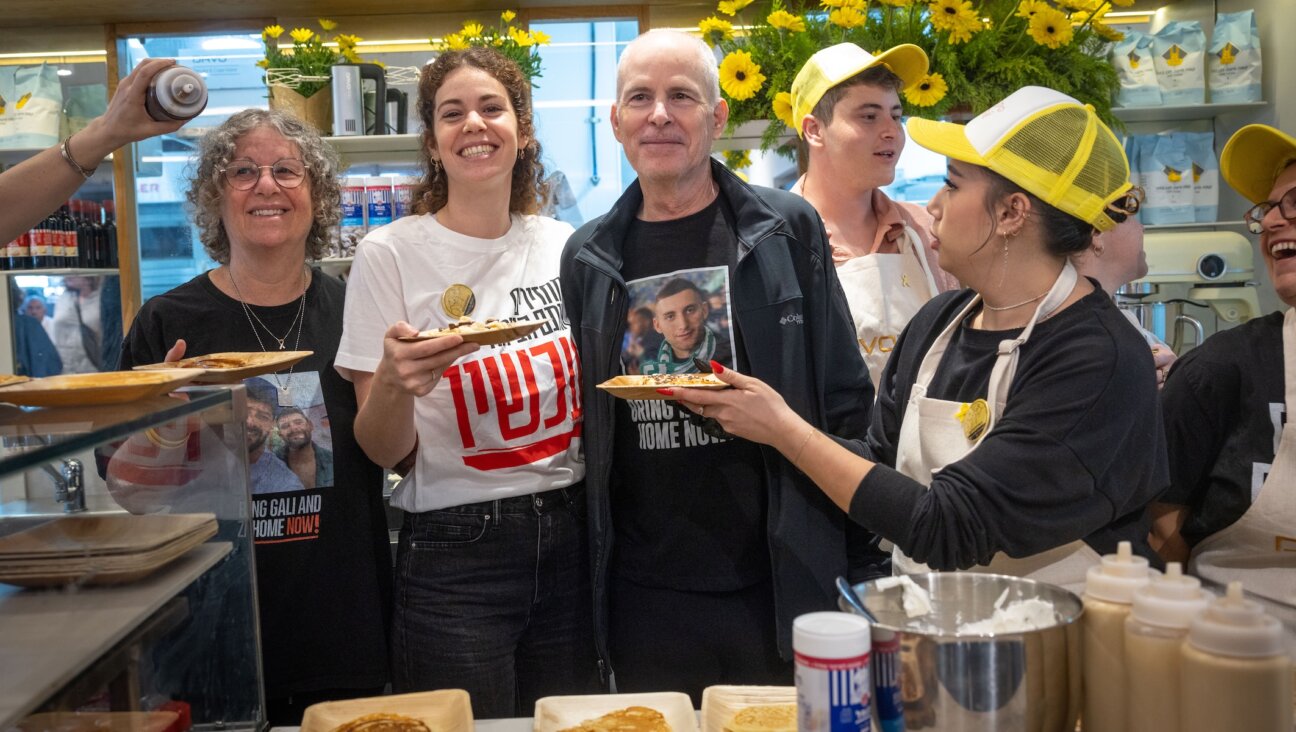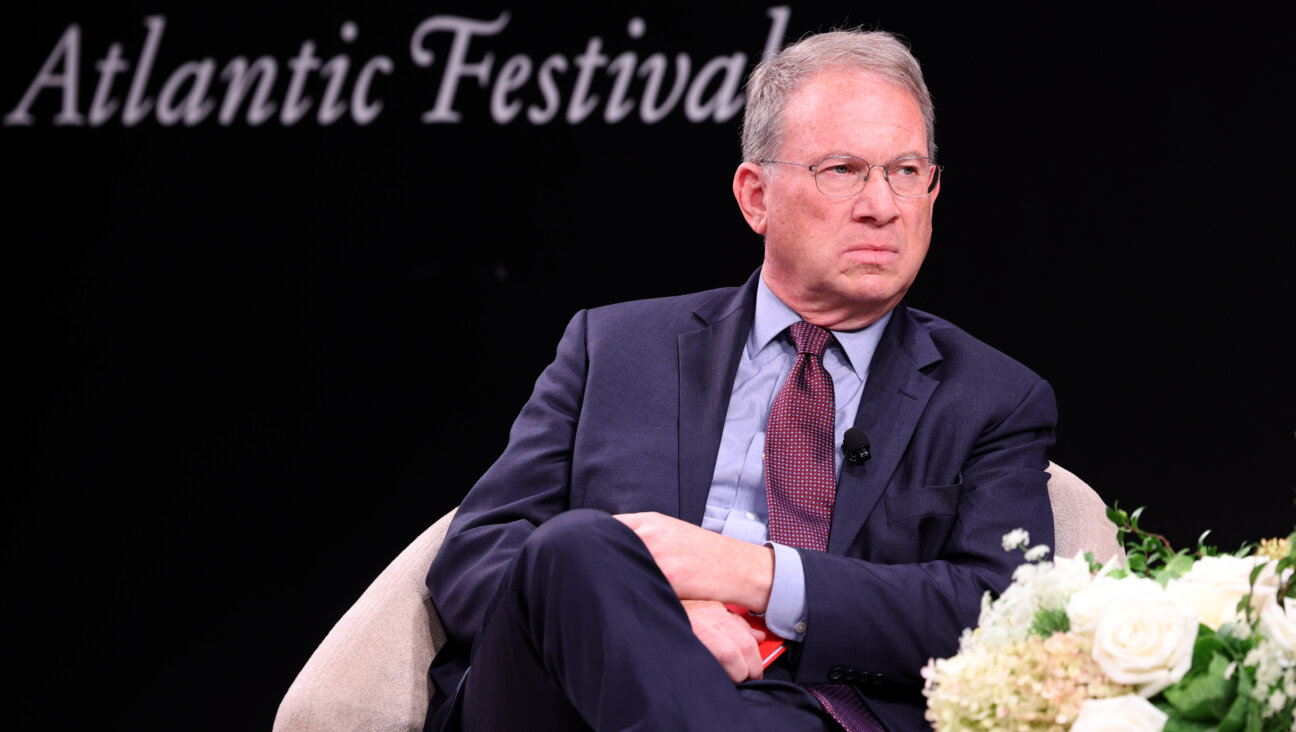Here’s How Neo-Nazis Identify (((Jews))) on Twitter

Image by Twitter
Neo-Nazis have developed a way to surreptitiously mark the presence of Jews on social media in order to alert others to their identity, coordinated attacks, anti-Semitic vitriol, threats and images of concentration camps and Hitler.
Known as the “echo,” the symbol consists of three parenthesis around a Jewish person’s name, for example, (((Efrem))). According to Mic, the symbol was first introduced in 2014 by a right-wing website The Right Stuff in their podcast called The Daily Shoah, and serves as a bat signal of sorts. Or as a neo-Nazi said to writer Jeffrey Goldberg, “It’s closed captioning for the Jew blind.”

Image by Twitter
A Google Chrome browser plugin, known as the “Coincidence Detector,” facilitates the search by automatically placing an echo on Jewish-sounding names and organizations and replacing the word Israel as users browse the web. For example, Israel appears as (((Our Greatest Ally))), and every (((Cohen)))), (((Katz))) and (((Weinberg))) were also sandwiched in parenthesis.

Image by AIPAC


List of Nobel Prize winners. Image by Wikipedia

Image by Jerusalem Post

Image by Jerusalem Post
According to Mic, the plugin is in use by 2,473 users and has a rating of 5 out of 5 stars and, as of this writing, is available for download in the Google Chrome store. The plugin is connected to a database that allows users to refresh their list and keep up to date with the Coincidence Detector’s most current list of Jews and “anti-whites.”

The plugin, though alarming, is not foolproof. A search on Chabad.org did not turn up any results and it didn’t catch many Jewish surnames on the Forward’s own masthead.

Image by forward
Jonathan Weisman, the deputy Washington editor for the New York Times received the tweet “Hello ((Weisman)),” from @CyberTrump after he tweeted a an article about Donald Trump and a new wave of fascism in the United States. “It’s a dog whistle, fool,” he wrote. “Belling the cat for my fellow goyim.” That’s all it took to get the attention of other white supremacists on Twitter, many from self-identified Trump supporters, Weisman wrote in a May 26 article. Weisman’s account was flooded with anti-Semitic and Holocaust imagery, with one photo of the gates of Auschwitz, where the words “Arbeit Macht Frei” were replaced with “Machen Amerika Great.”
“I found myself staring down a social-media timeline filled with the raw hate and anti-Semitic tropes that for centuries fueled expulsion, persecution, pogroms and finally genocide,” Weisman wrote.
Weisman is not alone in his experience. Journalists, and especially Jewish journalists, have been harassed and besieged by neo-Nazis and white supremacist Trump supporters. When reporter Julia Ioffe wrote an unfavorable GQ profile of the would-be First Lady, Melania Trump, the onslaught of hate speech was so fierce she had to file a police report after receiving death threats. When asked about it by DuJour magazine, Melania Trump said she doesn’t control her fans, and though there are “people out there who maybe went too far. She provoked them.”

Image by Twitter: Comingsoon.net
@jonathanweisman @RJC @Rusted_Ovum pic.twitter.com/Xwj2BiWeJ8
— Spectre ✘ (@SpectreReturns) May 19, 2016
The echo is difficult to find on Twitter and even harder to police. When asked to comment by Mic reporters, Twitter representatives directed them to a statement by Karen White, Twitter’s head of public policy for Europe: “Hateful conduct has no place on Twitter and we will continue to tackle this issue head on alongside our partners in industry and civil society,” she said.
Contact Maia Efrem at [email protected].
The Forward is free to read, but it isn’t free to produce

I hope you appreciated this article. Before you go, I’d like to ask you to please support the Forward.
At a time when other newsrooms are closing or cutting back, the Forward has removed its paywall and invested additional resources to report on the ground from Israel and around the U.S. on the impact of the war, rising antisemitism and polarized discourse.
Readers like you make it all possible. We’ve started our Passover Fundraising Drive, and we need 1,800 readers like you to step up to support the Forward by April 21. Members of the Forward board are even matching the first 1,000 gifts, up to $70,000.
This is a great time to support independent Jewish journalism, because every dollar goes twice as far.
— Rachel Fishman Feddersen, Publisher and CEO
2X match on all Passover gifts!
Most Popular
- 1

Film & TV What Gal Gadot has said about the Israeli-Palestinian conflict
- 2

News A Jewish Republican and Muslim Democrat are suddenly in a tight race for a special seat in Congress
- 3

Fast Forward The NCAA men’s Final Four has 3 Jewish coaches
- 4

Culture How two Jewish names — Kohen and Mira — are dividing red and blue states
In Case You Missed It
-

Fast Forward ‘Need a final solution’: Podcast host calls for mass deportation of U.S. Jews
-

Fast Forward Britain’s Tate to return Nazi-looted painting to heirs of Jewish art collector
-

Fast Forward 3 sentenced to death for murder of UAE Chabad rabbi
-

Books The White House Seder started in a Pennsylvania basement. Its legacy lives on.
-
Shop the Forward Store
100% of profits support our journalism
Republish This Story
Please read before republishing
We’re happy to make this story available to republish for free, unless it originated with JTA, Haaretz or another publication (as indicated on the article) and as long as you follow our guidelines.
You must comply with the following:
- Credit the Forward
- Retain our pixel
- Preserve our canonical link in Google search
- Add a noindex tag in Google search
See our full guidelines for more information, and this guide for detail about canonical URLs.
To republish, copy the HTML by clicking on the yellow button to the right; it includes our tracking pixel, all paragraph styles and hyperlinks, the author byline and credit to the Forward. It does not include images; to avoid copyright violations, you must add them manually, following our guidelines. Please email us at [email protected], subject line “republish,” with any questions or to let us know what stories you’re picking up.















